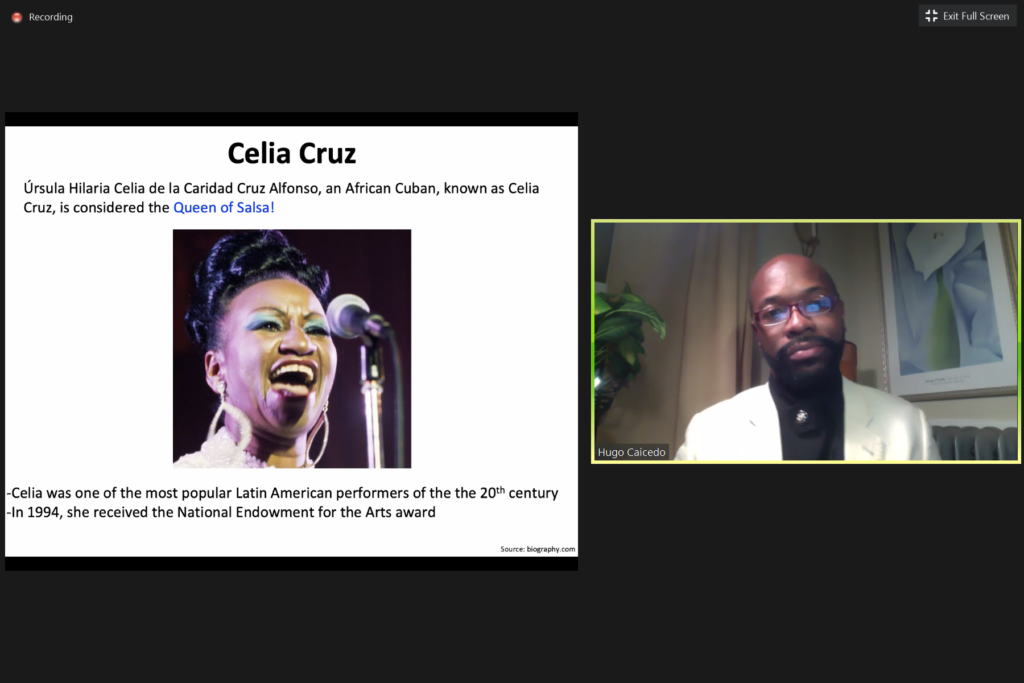Hugo Caicedo gave a presentation on Oct. 17 via Zoom about how African Latinos, who make up a large portion of Latin America, have contributed to Latin American culture and impacted the United States.

This presentation wrapped up Weber State’s Hispanic Heritage Month events, and it covered topics such as African history in Latin America, along with African Latino’s achievements in the U.S. and influence in music.
African influence in Latin America began with slavery in the 1500s through the late 1800s. Caicedo said less than four percent of enslaved Africans in the Americas were located in the U.S.
While Haiti was the first country in the Americas to abolish slavery in 1804, the first community to be freed of slavery was in Palenque, Colombia, in 1604, following the slave revolt lead by Benkos Biohó.
The last American country to abolish slavery was Brazil in 1888.
Caicedo also talked about different historical figures, such as Arturo Alfonso Schomburg and Jean Baptiste Point du Sable.
Schomburg, an African Puerto Rican, moved to New York City to spread awareness of African Latin Americans’ contributions to society and developed the Schomburg Center of Research in Black Culture.
Point du Sable, an African Haitian, was the founder of Chicago. However, he was not recognized as such until the 1850s.
Caicedo then spoke about the contributions African Colombians have made in the U.S., starting with himself and his family.
Caicedo and his siblings, Olga and Julio, are scientists, researchers and health care executives. They have attended some of the top schools in both the U.S. and Colombia. They have also worked on articles for multiple journal publications.
Other African Colombians Caicedo mentioned were Raúl Cuero, whose technology has been used by NASA, and Jose Perea, whose research is helping create technology for the United States’ national security.
To wrap up the presentation, Caicedo talked about African Latin Americans and their impact on the music industry, using salsa music as one of the main examples.
“When slaves are captured and taken to America from Africa, they bring all this rich musical awareness and knowledge and start mixing that with the Native and the European’s [music], and that actually helped create this particular hallmark of Latin American culture,” Caicedo said.
One of the musicians mentioned was Celia Cruz, an African Cuban who is considered the Queen of Salsa.
Cruz was one of the most popular Latin American performers and was given the National Endowment for the Arts award by former President Bill Clinton.
Caicedo also mentioned African Colombian group ChocQuibTown, a Latin Grammy-winning hip-hop group.
He ended the presentation stating that African Latin Americans are not a homogeneous group but instead a classification based on historical, regional, ethnic and political contexts. Contributions made by African Latin Americans are exceptional despite not being properly displayed.



















